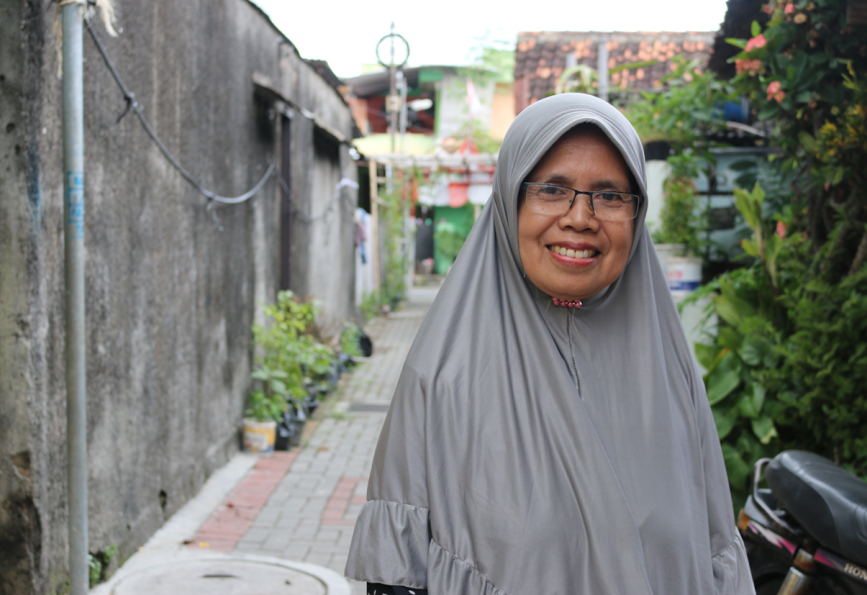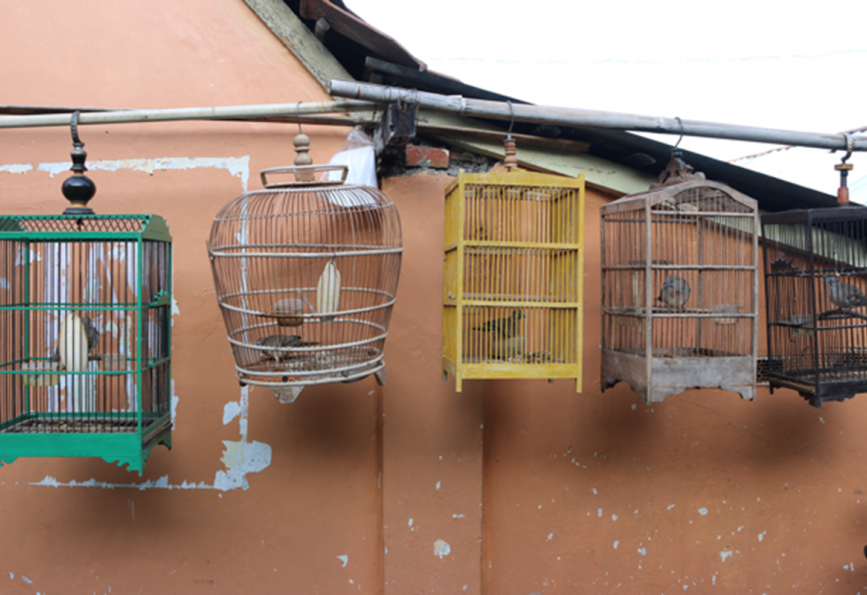
Published date: 09 Dec 2021
By: Sam Aiton
Rukun Warga (RW6) is a tiny hamlet within Sorosutan Urban Village in the heart of Yogyakarta City.
The neighbourhood is a labyrinth of lanes, alleys and narrow streets. A relatively peaceful pocket besides the buzz of motorbikes and the chirping from bird cages that swing from the eaves of the neat, pastel coloured homes.
This is high density living. Day-to-day life plays out on the streets. There are no parks or pathways or play spaces. Every square inch of space is occupied by something. A perfect environment for mosquitoes to breed, feed and spread disease – where humanity is condensed and one bloody meal is never too far from the next.
Mrs Sutini Sugiyanti, or more affectionately Mrs Yanti, knows RW6 better than most. This is where she was born. And where she has lived all of her life.
“It’s not an ideal place for a child to grow up,” she says. “There are no playgrounds to play, we had to play in the streets. But it’s quiet and safe.”
Mosquito-borne disease, especially dengue, has been a seasonal issue here for many decades. An outbreak in 2016 one of the worst Mrs Yanti can remember. There were a total of 1,700 cases and 13 deaths across the city. Most of those infected were school-age children between 7 and 14 years old.
“There would often be up to ten cases across our village, but at that time there were five cases in this tiny hamlet alone. Our area was declared number one with the most reported cases of all areas in the city. We were ashamed. It was as though we lived uncleanly.”

A respected and entrenched member of the local community, Mrs Yanti also serves as a spokesperson for a Family Welfare Movement known as the PKK. Every month she is invited to attend a meeting in the Village Office where public issues and announcements are discussed for dissemination to the wider community.
In 2016, one matter for discussion was the introduction of the World Mosquito Program’s Wolbachia method and how local households could become involved in a trial release of Wolbachia-carrying mosquitoes in and around their homes.
Naturally, there was some initial reservation about the program with concern about an increase in the mosquito population. But the more the method was explained, the more community acceptance grew.
The community in any World Mosquito Program project plays a key role in implementation. Without their endorsement, and indeed their participation there would be no project at all. But after years living in fear of another dengue season, people in urban villages like Mrs Yanti’s are often relieved to know they can be part of the solution.
“I was glad to be involved. I always remind people about maintaining a healthy lifestyle whenever I get the chance. I knew this would be beneficial for the neighbourhood. We strongly hope to be free from mosquito-related fear. We all wish to live dengue free."

